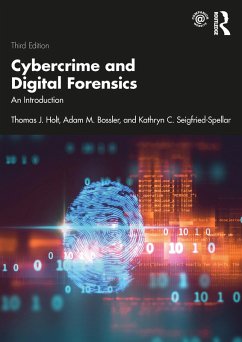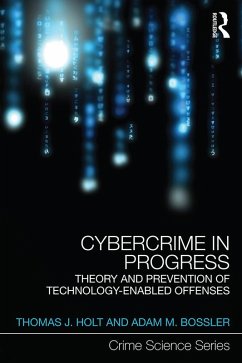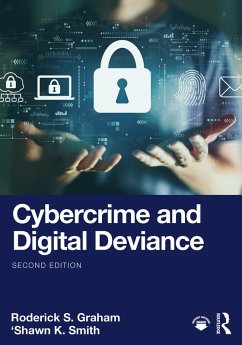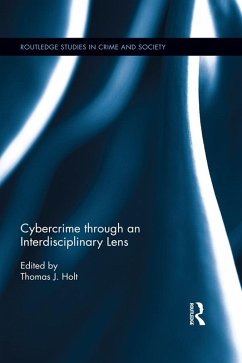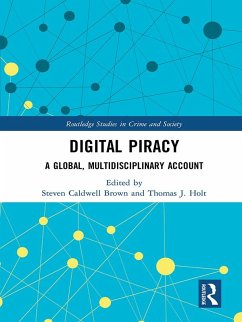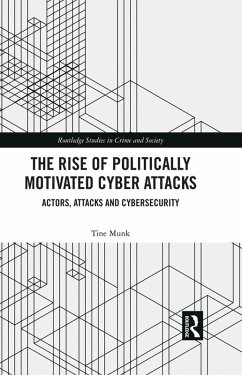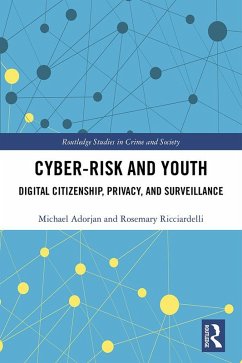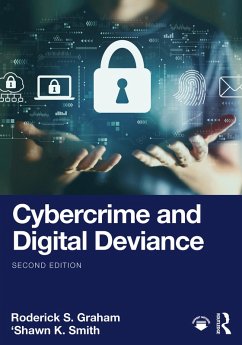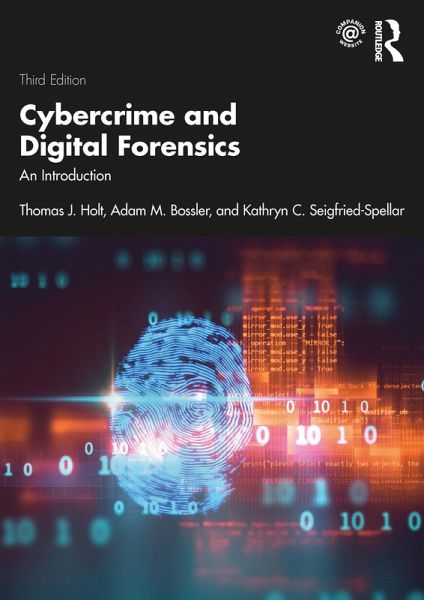
Cybercrime and Digital Forensics (eBook, PDF)
An Introduction
Versandkostenfrei!
Sofort per Download lieferbar
37,95 €
inkl. MwSt.
Weitere Ausgaben:

PAYBACK Punkte
19 °P sammeln!
This book offers a comprehensive and integrative introduction to cybercrime. It provides an authoritative synthesis of the disparate literature on the various types of cybercrime, the global investigation and detection of cybercrime and the role of digital information, and the wider role of technology as a facilitator for social relationships between deviants and criminals. It includes coverage of:. key theoretical and methodological perspectives;. computer hacking and malicious software;. digital piracy and intellectual theft;. economic crime and online fraud;. pornography and online sex crim...
This book offers a comprehensive and integrative introduction to cybercrime. It provides an authoritative synthesis of the disparate literature on the various types of cybercrime, the global investigation and detection of cybercrime and the role of digital information, and the wider role of technology as a facilitator for social relationships between deviants and criminals. It includes coverage of:
. key theoretical and methodological perspectives;
. computer hacking and malicious software;
. digital piracy and intellectual theft;
. economic crime and online fraud;
. pornography and online sex crime;
. cyber-bullying and cyber-stalking;
. cyber-terrorism and extremism;
. the rise of the Dark Web;
. digital forensic investigation and its legal context around the world;
. the law enforcement response to cybercrime transnationally;
. cybercrime policy and legislation across the globe.
The new edition has been revised and updated, featuring two new chapters; the first offering an expanded discussion of cyberwarfare and information operations online, and the second discussing illicit market operations for all sorts of products on both the Open and Dark Web.
This book includes lively and engaging features, such as discussion questions, boxed examples of unique events and key figures in offending, quotes from interviews with active offenders, and a full glossary of terms. It is supplemented by a companion website that includes further exercises for students and instructor resources. This text is essential reading for courses on cybercrime, cyber-deviancy, digital forensics, cybercrime investigation, and the sociology of technology.
. key theoretical and methodological perspectives;
. computer hacking and malicious software;
. digital piracy and intellectual theft;
. economic crime and online fraud;
. pornography and online sex crime;
. cyber-bullying and cyber-stalking;
. cyber-terrorism and extremism;
. the rise of the Dark Web;
. digital forensic investigation and its legal context around the world;
. the law enforcement response to cybercrime transnationally;
. cybercrime policy and legislation across the globe.
The new edition has been revised and updated, featuring two new chapters; the first offering an expanded discussion of cyberwarfare and information operations online, and the second discussing illicit market operations for all sorts of products on both the Open and Dark Web.
This book includes lively and engaging features, such as discussion questions, boxed examples of unique events and key figures in offending, quotes from interviews with active offenders, and a full glossary of terms. It is supplemented by a companion website that includes further exercises for students and instructor resources. This text is essential reading for courses on cybercrime, cyber-deviancy, digital forensics, cybercrime investigation, and the sociology of technology.
Dieser Download kann aus rechtlichen Gründen nur mit Rechnungsadresse in A, B, BG, CY, CZ, D, DK, EW, E, FIN, F, GR, HR, H, IRL, I, LT, L, LR, M, NL, PL, P, R, S, SLO, SK ausgeliefert werden.




